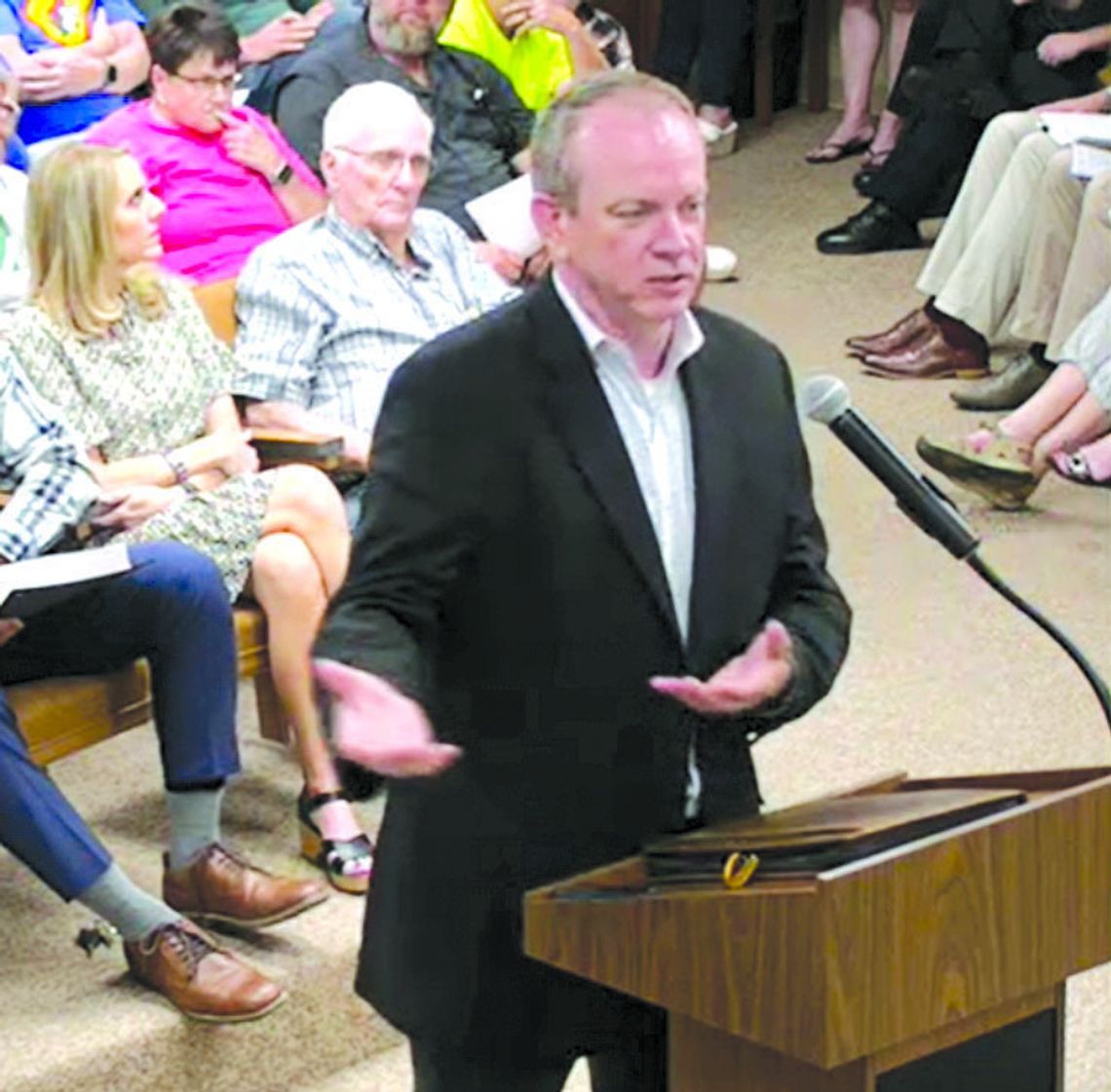A change benefiting commercial property owners and industries moving into Texas may impact local cities’ ability to take advantage of rising property values, according to a presentation by Williamson Central Appraisal District Chief Appraiser Alvin Lankford. The state put a “Circuit Breaker Limitation,” commonly referred to as a cap, of 20% annual increase on commercial and other types of investment properties valued at $5 million or less.
“If you’re used to the homestead cap on your property of 10%, this cap of 20% is going to apply to all nonhomesteaded real property. So commercial, residential that’s not homesteaded, that sort of thing,” Lankford said.
Lankford’s presentation stated the rule was passed with a three year trial period and “will not impact many properties every year.” The cap will use the 2024 property values as a base.
The last state legislative session saw many amendments to how the WCAD does business. At their May 23 meeting, Lankford briefly went through a few of the notable changes.
In addition to adding the new 20% non-homestead cap, Lankford said the government is tightening its oversight of homestead exemptions.
“Basically, what that means is we as an appraisal district have to go through all the homesteads at least once every five years to ensure there’s no fraud on those homesteads,” the chief appraiser explained. “You may have heard these circumstances happening where someone has another homestead in another city or another state. These audits go out and look at all the governmental documents out there to make sure there’s not another homestead that exists.”
Another of the changes included adding three publiclyelected members to the WCAD board of directors and allowing the Tax Assessor Collector to become a voting member, raising the total board membership to nine positions. Lankford said the newly- elected board members will attend their first meeting in July.
Lankford showed statistics from the Texas A&M Real Estate Center demonstrating that property values went down from 2022 to 2023 and are now “flattening out” in 2024. However, he reminded the public that properties with homestead exemptions will still most likely see a tax increase as their taxed value rises only 10% each year, but has to continue rising yearly until it equals the full market value.
The city’s total market value also increased, jumping from $1.61 billion just five years ago to almost $4 billion this year.
“The city of Taylor’s total market value did increase this year from $3.27 billion to $3.97 billion. Keep in mind that about $423 million of that is [Samsung Austin Semiconductor],” Lankford said.
The appraiser reported that Taylor’s median home value rose from $274,576 last year to $280,888. He reminded the public that before filing a protest, they need to have actual evidence that their property value should be lower.
“If you cannot produce market evidence that your market value should be lower than the assessed value, then it does nothing for your taxes,” he said. “So, if you have market evidence that says it can be below that it may be worthwhile to come in. If you don’t, it probably won’t be worthwhile to come in because it will not impact your taxes.”
Council members asked about how sales of high-priced buildings might affect other property owners downtown in light of the McCrory-Timmerman building now being offered for sale with a price tag over $15 million. Lankford replied that it would definitely have an effect.
“When we see sales, we have to react to them. We’re required by the state tax code as well as the constitution of our state,” Lankford said. “Our job as an appraisal district is to equalize the tax burden based on market value. So if you have certain properties that are not at market value then they are paying less of their fair share of the tax burden. We use those sales to ensure that market values are where they need to be so they are paying their fair share of taxes.”
As a final note, Lankford reminded City Council that the public’s tax bill is not set by WCAD but by the cities, school districts and other taxing entities.
“I hear that a lot, ‘We’re in here protesting our taxes’. That’s not what you’re protesting. You’re only protesting the value with us,” he said. “Taxes are ultimately determined by the taxing units. Our value is just the first part of that equation and we choose that long before y’all even start budget discussions.”





